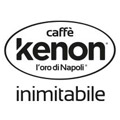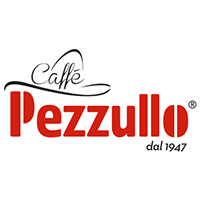

























Kimbo







MariaSole





























The different coffee brands and their peculiarities
 “I measured my life in coffee spoons”. Who knows how many of them Thomas Stearns Eliot, famous poet, and author of some of the texts that have given rise to wonderful plays, must have drunk?
“I measured my life in coffee spoons”. Who knows how many of them Thomas Stearns Eliot, famous poet, and author of some of the texts that have given rise to wonderful plays, must have drunk?
Reading these words of his, one thinks of the 1948 Nobel Prize winner for literature sitting at a table, enjoying the delicious drink from a warm cup in a bar in dreary London. And it is even more fascinating is to think of that cup of his as a non-paying spectator of the birth of timeless masterpieces such as Murder in the Cathedral or The Wasteland.
Throughout the history of the world, there have been many admirers of perhaps the most widespread and best-known beverage on the global scene.
In 1732, the great composer Johann Sebastian Bach even composed a little-known Coffee Cantata, while his colleague and rival Beethoven demanded that his coffee be prepared with exactly 60 beans. But the most convinced and avid fan was the writer Honoré de Balzac, who was able to consume up to 50 cups a day and who wrote The Treatise of Modern Stimulants, placed in the appendix to an edition of the Physiology of Taste by Brillat-Savarin. «Coffee reaches the stomach, and everything sets in motion - said the author of the monumental The Human Comedy - ideas advance like battalions of a great army on the battlefield. Memories come charging like the standard-bearers of the array, the light cavalry of comparisons comes forward impetuously with a splendid gallop».
The most famous coffee brands
 Widespread in Europe in the 15th century, it has varied in many tastes, specialties, lent itself to hundreds of recipes thanks to the genius and skilful hands of starred chefs and now accompanies the breakfast of all Italians, wise and proud admirers of coffee, who have been able to make the beloved product their own brand. Today there are hundreds of coffee roasters, each with its own peculiarities and its own blends or with the secret ingredient that makes it the most loved one. Here then the Italian coffee brands range from Lavazza and Kimbo, passing by Illy, Caffè Borbone and Caffè Passalacqua. Celebrities and icons of quality of the Belpaese in the world, have been able to impose their "dominion" thanks to efficiency, meticulous workmanship, and care of the product.
Widespread in Europe in the 15th century, it has varied in many tastes, specialties, lent itself to hundreds of recipes thanks to the genius and skilful hands of starred chefs and now accompanies the breakfast of all Italians, wise and proud admirers of coffee, who have been able to make the beloved product their own brand. Today there are hundreds of coffee roasters, each with its own peculiarities and its own blends or with the secret ingredient that makes it the most loved one. Here then the Italian coffee brands range from Lavazza and Kimbo, passing by Illy, Caffè Borbone and Caffè Passalacqua. Celebrities and icons of quality of the Belpaese in the world, have been able to impose their "dominion" thanks to efficiency, meticulous workmanship, and care of the product.
 Thus was born what many roasters define, through a literary aphorism, the "Culture of Coffee". It is enough to take a tour on the web and on the main online sites of coffee brands, no matter if famous or not, to find the word culture mentioned everywhere. And if Italy boasts a millenary history at literary and artistic level, the best and longest in terms of temporal continuity worldwide, the culinary one is no less important, especially if understood in terms of caffeine.
Thus was born what many roasters define, through a literary aphorism, the "Culture of Coffee". It is enough to take a tour on the web and on the main online sites of coffee brands, no matter if famous or not, to find the word culture mentioned everywhere. And if Italy boasts a millenary history at literary and artistic level, the best and longest in terms of temporal continuity worldwide, the culinary one is no less important, especially if understood in terms of caffeine.
A culture that for centuries was owned by producers and high offices, the only recipients of knowledge of secret recipes to be kept safe from prying eyes and usurpers. Today, however, this knowledge does not always remain the prerogative of the producers or of a restricted circle of individuals, the few chosen to handle the product. Fortunately, the cult of coffee is not at the level of the sacredness of Greek or Egyptian temples, whose access to the most intimate places was allowed only to priests. In fact, more and more people have access to coffee processing and more and more workers are interested in its production, from the choice of beans to roasting and packaging.
illy

An example of this is Illy, which for years in Trieste - a city located in the extreme north-east of Italy where the company has its headquarters - has started a real (Università del Caffè) University of Coffee, with specialized courses for high training and product dissemination, including the Master in Economics and Science of Coffee Ernesto Illy.
These range from biological to agronomic aspects, without neglecting the technological aspects of the process that starts from the coffee plant and brings the final product into the cup.
Lavazza
Lavazza's professional career, a coffee brand that has been promoting development and cutting-edge techniques for years, is based on the same line of thinking. The Coffee School with its "Training Center" is a point of reference for professionals in the sector who want to make the roaster a telescope towards tomorrow. Lessons, refresher courses, training courses: in short, the ideal solution for those who have chosen to transform their passion for coffee into work. This is how not only specialised production workers are born, but also consultants and managers, company managers and leading professionals in the gastronomic field. The "oenologists" of coffee.
Lesser known coffee brands
Training is not only a prerogative of the world's most renowned coffee brands.
Evidence of this is also the testimony of Sant’Eustachio, Roman artisan roasting company, which offers specialized courses in product knowledge at a minimum price and accessible to all. Under the watchful eye of the Pantheon of Rome, the resting place of kings and great artists, the Eustachio coffee is a must for tourists and inhabitants of the Capital who want refreshment or even a simple break savouring on the lips the intense and creamy taste of Sant'Eustachio coffee.
“In our factory we make coffee only with the classic Neapolitan coffee machine, the ancient system used by our grandparents”. As said, we can also aim at the advanced branch of production, but tradition and passion remain a cornerstone of the development of the great coffee brands. The Campania-based company Passalacqua is well aware of this, as can be read in the extract above that appears directly on their official website and even in their motto: "Where coffee is a family affair". Perhaps this is precisely the character that brings coffee closer to everyday life: its highly sensitive human side.
One cannot but think of a cup of coffee without bringing back memories of youth, personal ties or the birth of new loves. Coffee is a member of the family of all of us, also because once you become attached to it, you hardly ever leave it.
Each brand has chosen to keep its passion and tradition intact, which in many cases boasts over a century of experiments and improvements, always trying to keep an eye on the future. One eye to the past and one to the future, because only by drawing inspiration from past experiences can we build an excellent product for tomorrow.
From Illy's Trieste to Caffè Quarta's Lecce, the coffee brand has expanded throughout the country, from North to South.
Of course not only in Italy
 Coffee is a world heritage and a brand of coffee can be found in every corner of the planet. Traditional is the production offered by Carroux and Speicherstadt, companies based in Hamburg, Germany, which remember how fundamental the hand of man is the hand of man in order to give life to a product which is really of quality.
Coffee is a world heritage and a brand of coffee can be found in every corner of the planet. Traditional is the production offered by Carroux and Speicherstadt, companies based in Hamburg, Germany, which remember how fundamental the hand of man is the hand of man in order to give life to a product which is really of quality.
Machines help but are powerless where heart and passion are needed.
Brazil, United States, Far East. And again France, England, Spain, Greece. Each nation offers its own version, its delicious fragrance and mixture of flavors.
Everything, however, focuses on the true, unique, and inimitable taste of coffee. "How sweet is the taste of coffee! Sweeter than a thousand kisses, sweeter than a moscato wine," said Bach. And if the great composer of the Toccata and Fugue in D minor says so, then we can trust him.



